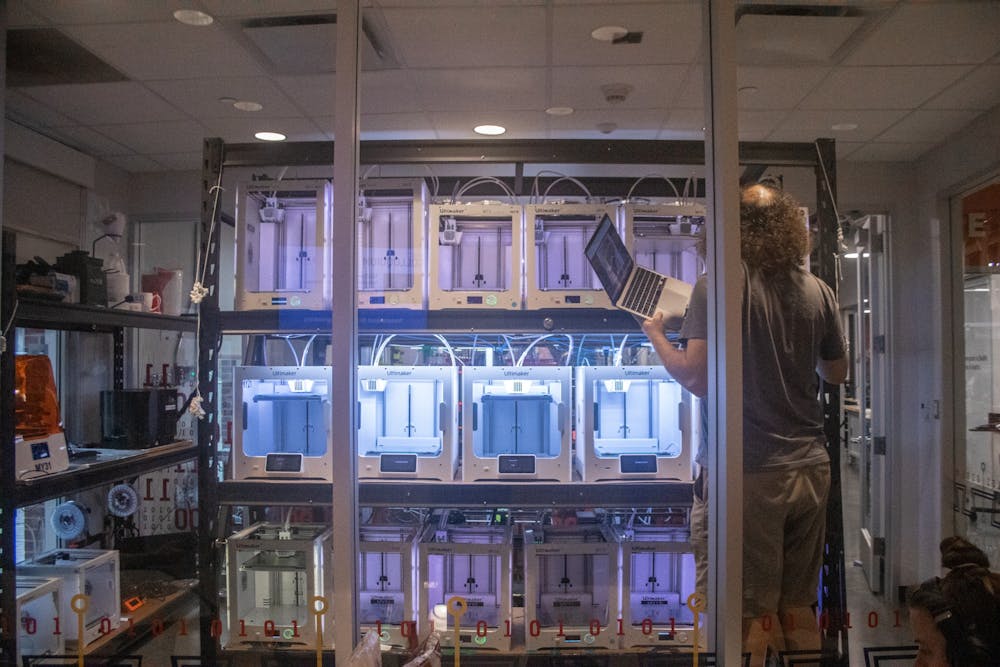The University's BeAM, or "Be A Maker" spaces, recently introduced a new cloud-based printing initiative — 3DPrinterOS.
The software allows Makerspace patrons to begin 3D prints virtually instead of having to physically connect their computers to the printers.
Reese Letts, a BeAM program assistant, described BeAM as a place that promotes student creativity. Before 3DPrinterOS’s installation, she said the 3D printing process was far more tedious and time-consuming.
But with 3DPrinterOS, Letts said the overall printing experience is more streamlined. Participants are notified in real-time of the number of filaments needed, she said, how many filaments are left and the color chosen for the project.
"Depending on people's personal preferences, there's a lot of different softwares that people like to use and 3DPrinterOS accepts all of those," she said.
BeAM director Kenny Langley said that, along with technological renovation, BeAM is devoted to improving its mission of environmental sustainability.
“In our trainings and through reinforcement on the floor, when people are working on projects, we encourage them to repurpose materials,” Langley said.
Langley said that BeAM is currently investigating sustainability within the printing process itself.
“We’ve been pushing toward a better solution for a 3D printer filament, but it wasn’t commercially available,” he said. “We’re looking for who is going to lead this and take it to scale, and it’s been colorFabb.”




